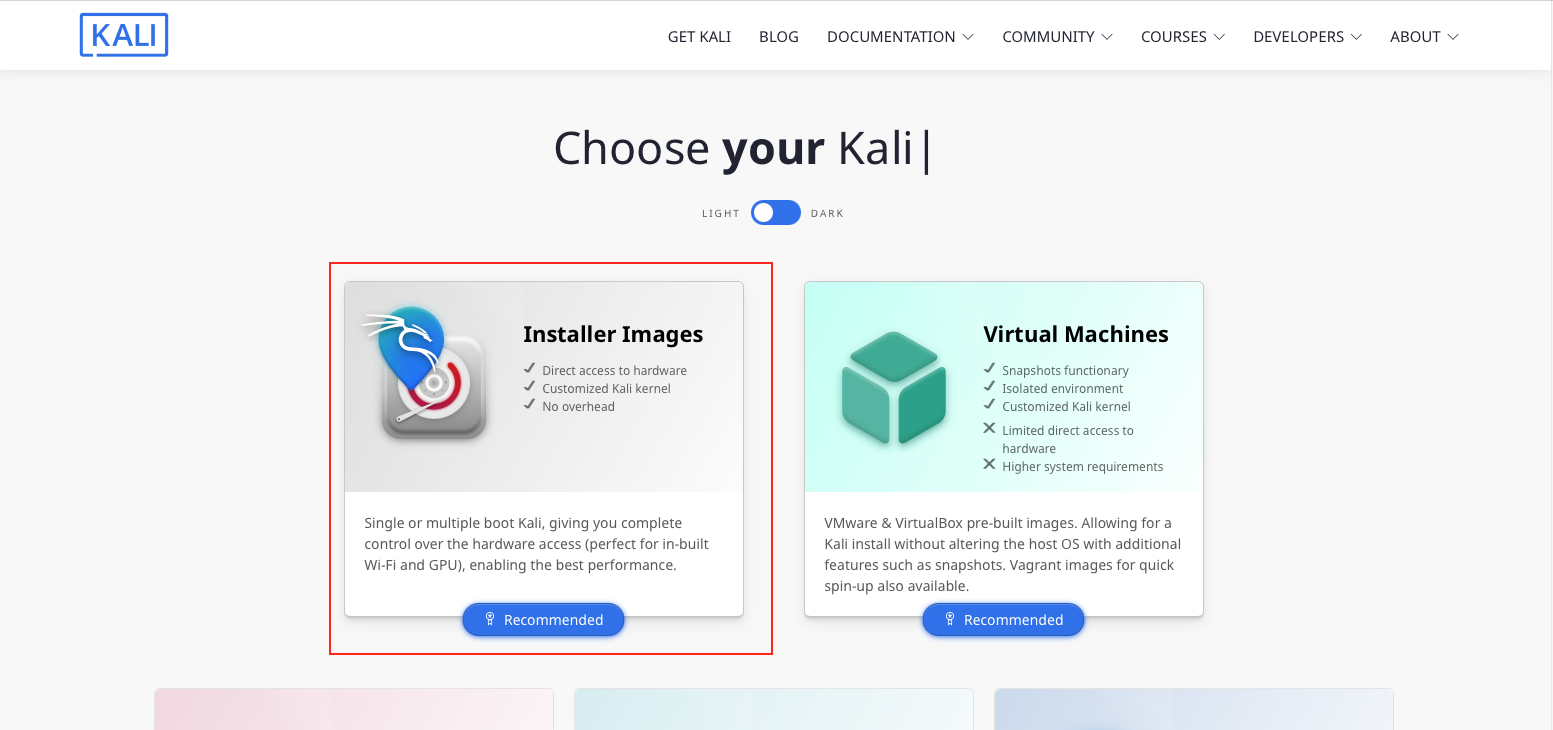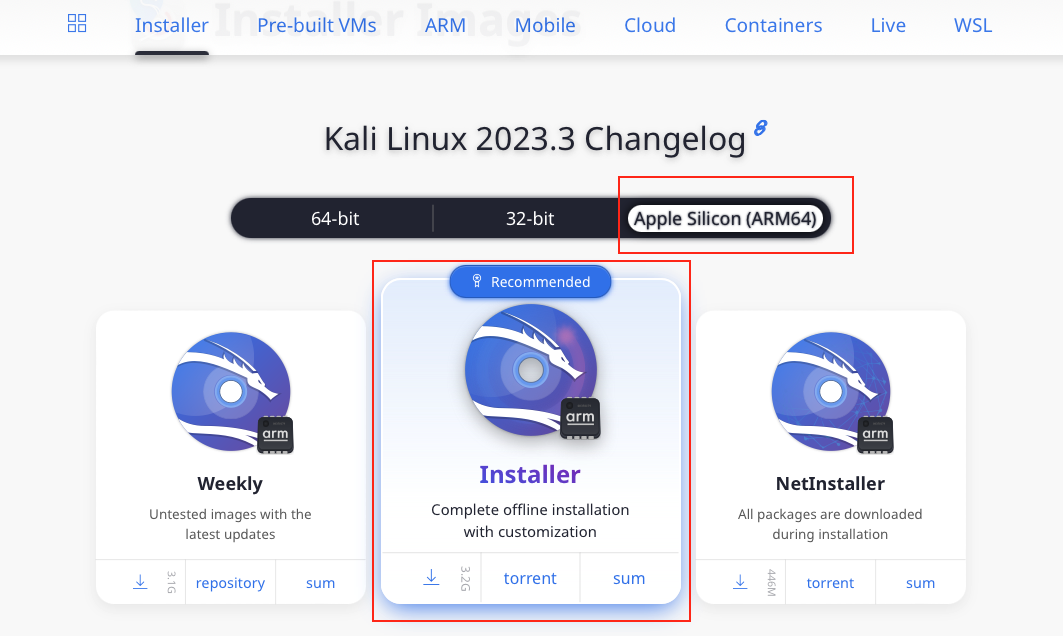What is the filename of the Kali installer that you're trying to use? Kali 2023.3 is released - you look like you're trying to use a release candidate build which has already been released.
I've had good luck using the Installer Images built for Apple Silicon sourced from Kali here:


The filename that you get when using this is:
kali-linux-2023.3-installer-arm64.iso
I would think that the NetInstaller image and Weekly installer image would work as well.
Create a new virtual machine and opt to create a custom virtual machine. You may be able to drag/drop the installer onto the "Select an installation method", but the custom virtual machine paths has been verified to be able to create the virtual machine correctly.
- When prompted, Set it's operating system type to "Other Linux 5.x kernel 64-bit Arm"
- Create a new virtual disk.
- At the "Finish" dialog, click the "Customize Settings" button instead of "Finish".
- Name and save the VM.
- In the VM's settings, make the following modifications:
- Set the virtual machine for 4GB memory and 2 CPUs
- Increase the hard drive size to a minimum of 20GB
- Configure the virtual CD/DVD drive to point to the installation ISO
You can now power up the VM and install Kali. (I just followed this process with a brand new freshly created VM, and the installation went fine).
By the way, did you happen to read the Unofficial Companion Guide for Fusion 13 that's posted here https://communities.vmware.com/t5/VMware-Fusion-Documents/The-Unofficial-Fusion-13-for-Apple-Silicon-Companion-Guide/ta-p/2939907 and often referenced in this forum? This procedure for Kali installation is taken from that document and could have saved you a lot of time if you'd had a chance to look at it.